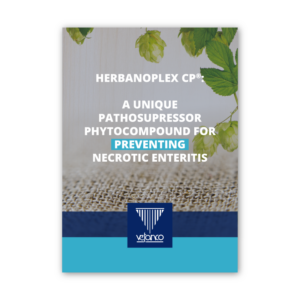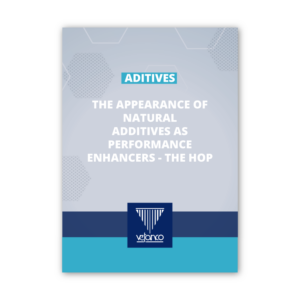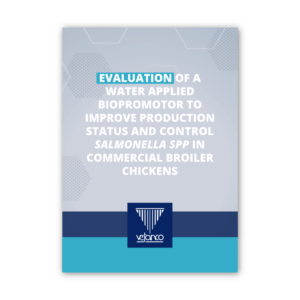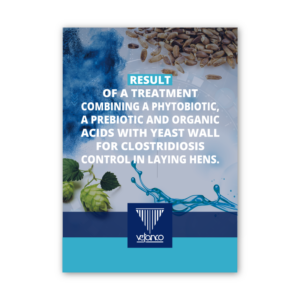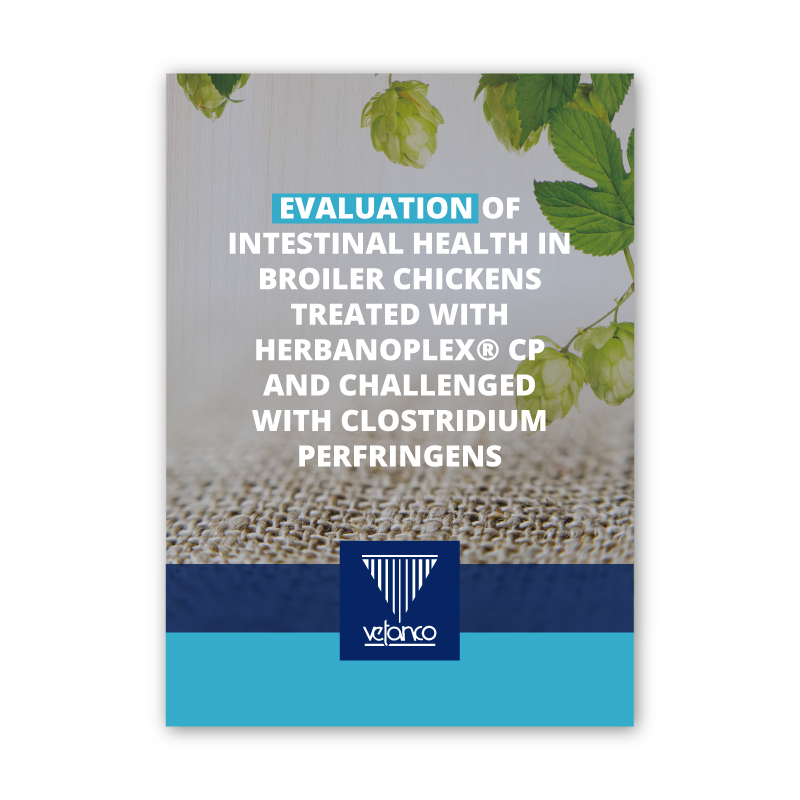
Enteric illnesses have a strong impact on the poultry industry, because its negative effects reduce production and increase both mortality and zoonotic risks.
Among the most relevant pathologies, the necrotic enteritis (NE) stands out because it generates high costs for the poultry industry; annually, about 2 billion dollars are spent worldwide as a consequence of this illness that produce a growth delay and the death of birds.
Vetanco, in partnership with the University of the State of Londrina (UEL), evaluated the product HERBANOPLEX® CP in 100 broiler chicken, male and one day-old, housed in experimental cages in the Laboratory of Infectology of the University of the State of Londrina UEL. The birds were immunosuppressed with a vaccine for Gumboro disease, challenged with oocysts of Eimeria and, in the sequence, challenged with Clostridium perfringens ,10⁸ UFC/ml.

